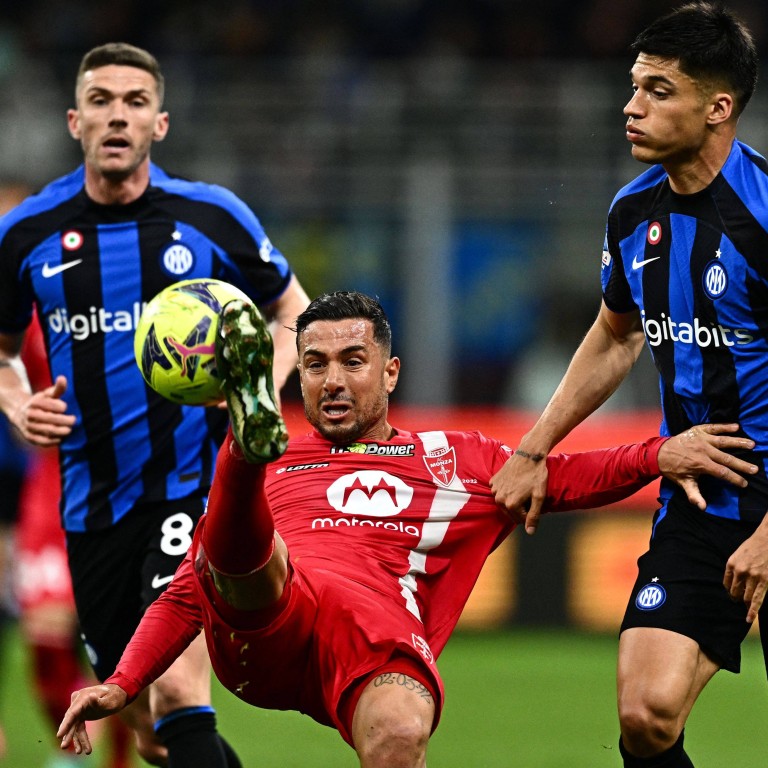
Match fixing spiralling and sports must act to halt it, expert says, naming football, basketball as No 1 and 2 worst affected
- Issue needs ‘more than a fig leaf’ in response, according to match-fixing detection chief at Sportradar, which works with sporting bodies to uncover corruption
- Football hit by betting and alleged fixing controversies in England and Hong Kong respectively, while data reveals ‘explosion in match fixing’ in basketball
Sport must put more resources into uncovering match-fixing and be fearless in confronting it, a leading company in monitoring suspicious betting has urged after it found record levels of fixing last year that are set to be outstripped in 2023.
The company, which uses technology and human expertise to monitor betting and detect suspicious activity, partners with sporting federations that include the Hong Kong Football Association as well as football’s European governing body Uefa and the Asian Football Confederation (AFC). But it says more work is needed to stem the tide.
“There’s no simple answer,” said Tom Mace, Sportradar’s senior vice-president globally for integrity services, who leads the company’s match-fixing monitoring and detection team.

“From the last 10 years, the positives are there’s a lot more understanding that integrity is important. Most sports now have an integrity unit. They see it’s not just a petty crime but in the most serious cases is linked to serious criminal activity.
“But the numbers show we’re not winning yet. Partly it’s because of visibility, with improving systems and our use of AI finding micro levels of match fixing. But that shows very serious problems.”
Those figures reveal Sportradar detected over 1,200 suspicious matches in 12 sports in 2022 – the highest to date and a 34 per cent increase on 2021. By April this year – when it found 150 suspicious matches, the highest ever in a calendar month – 2023 was on course to exceed last year.
That 2022 total included 220 matches in basketball, which Mace said had “witnessed an explosion in match fixing”.
“This year it’s confirming its position as the No 2 most affected sport,” he said. “We see entire games being manipulated, and quarters, and the total points scored.”
Mace, whose career has included stints working for bookmakers, said the expansion of the betting market showed sports needed to be pre-emptive.
“What’s needed is much higher investment in integrity by governing bodies and at government level,” he said. “We need more than a fig leaf – bet monitoring is not enough.
“Sports need to invest in intelligence, investigations, education, to have a complete integrity programme even if there’s no fixing currently in their sport. Betting in all sports is increasing, and sports need to understand the risks.”
Sportradar’s technology can compile bets’ stakes, timing and users’ previous activity, producing more than 500 data points per match and billions of data sets per day. Algorithms, models and artificial intelligence are used to trigger alerts.
It monitors odds from 600-plus bookmakers, including state lotteries, betting exchanges and illegal operators. This is complemented by its betting and sporting experts, who can make judgments that generate the reports passed to sporting bodies.
The firm set up its first bet-monitoring system in 2005 and its first integrity unit followed four years later, on behalf of Uefa and the German FA. Since then, it had detected 8,270 suspicious matches as of the end of April, and is working with over 200 partners on integrity.
“Uefa has a good approach,” Mace said. “When we partnered in 2009, that was the first of its kind – they were among the visionaries who saw bet monitoring could form the basis of disciplinary cases. The AFC is another. They’ve always had a strong approach, and have found a number of cases.”
Where once cricket dominated discussion of fixing, others have come to the fore.
“We’re detecting more cricket matches than ever, but cricket was one of the first to have a serious integrity unit, and that’s partly why it made headlines – it wasn’t afraid to tackle it. Today, there are many more sports being targeted.”

